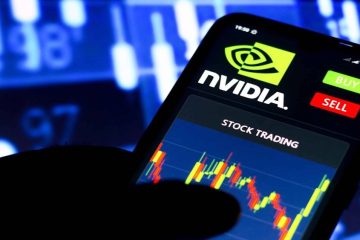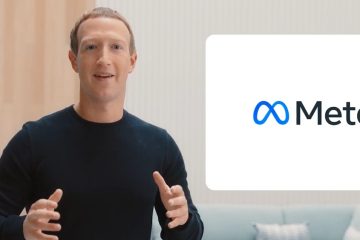Free technology is Meta’s strategy to win the AI race.

Mark Zuckerberg has a unique strategy for emerging victorious in the artificial-intelligence race: offering his company’s technology for free.
In line with its competitors, Meta Platforms, led by Zuckerberg, is investing billions of dollars in cutting-edge computer chips, top-tier computer scientists, and massive amounts of electricity to develop the most advanced AI tools possible. In contrast to its competitors, many of whom recently made AI announcements, Zuckerberg is generously sharing the results of his investment—Meta’s cutting-edge chatbots and the underlying technology behind them.
With the contrarian strategy, there is a belief that by offering Silicon Valley’s latest technology for free, it will lower the prices of competitors and increase the adoption of Meta’s AI. This would ultimately give Zuckerberg greater influence over how people engage with machines in the future.
“Avoiding the scenario where others possess exclusive technology that you lack access to is undesirable,” remarked Jerome Pesenti, formerly the vice president of AI at Meta and currently the founder of Sizzle AI.
Meta experienced the consequences of not having control over its own fate when Apple made the decision in 2021 to restrict Meta’s ability to collect user data without consent. This had been a crucial method for Meta to effectively target advertisements. The company reported a significant decline in revenue for 2022, amounting to over $10 billion. The company’s stock experienced a significant decline of 26%.
In order for the AI-giveaway strategy to be successful, Meta needs to attract its billions of users to the free AI services just as they were drawn to Facebook, Instagram, and WhatsApp. It suggests that advertising can be postponed, just as it has been in previous instances. Meta’s knack for monetizing user attention is widely recognized, although initial user feedback on its AI services has been varied.
In the race to attract users to a complimentary AI product, the competition intensified last week with the introduction of GPT-4o by OpenAI. This new version of their highly popular AI model is designed to serve as a conversational assistant and will be available for free. Google has recently released updated versions of its free AI models, which they have named Gemma. However, they are not inclined to release the underlying code of their most powerful tools, which they monetize by selling access. OpenAI has raised a substantial amount of funding, with a significant portion coming from Microsoft. Google announced plans to significantly increase its capital expenditures for the current year.
Meta announced in its last quarterly report that the implementation of AI technology may result in an estimated increase of $10 billion in expenses by 2024. Currently, there is no clear path to recover the expenditures in the short term. Meta generates revenue by selling advertisements on its social-media platforms. Meta does not generate revenue by offering cloud access to its servers, which is a key strategy employed by its AI rivals to monetize their large language models, or LLMs. Generative AI tools have the capability to assist in code writing and offer responses that resemble human answers, among various other functions.
The company’s stock took a significant hit last month following Meta’s announcement of increased investment in AI. However, Meta is receiving early support from certain investors and analysts who believe that it will ultimately benefit from making its generative AI available as “open source.” Open-source software is freely accessible to the public, as Meta is making the source code available without any intention of charging most businesses for its use.
Last month, Meta released its latest generative AI tool called Llama 3. This tool is now available for free to any company that has fewer than 700 million users. Companies can use and repurpose Llama 3 as they see fit. It successfully incorporated chatbots powered by Llama 3 into various platforms such as Instagram, WhatsApp, Facebook, Messenger, and the web.
“All of our properties are offered at no cost, as our aim is to facilitate connections between individuals. Additionally, we strive to assist individuals in connecting with artificial intelligence systems that can aid them in accomplishing tasks,” stated Ahmad Al-Dahle, Meta’s vice president of generative AI, in an interview with The Wall Street Journal. That has consistently been our strategy. That’s the essence of the company’s ethos.
In March, Zuckerberg made the strategic decision to expand the availability of AI products to users, providing the teams working on the company’s chatbot, Meta AI, with a tight deadline of one month to bring his vision to life, as reported by individuals familiar with the situation.
Mark Zuckerberg played a direct role in integrating Meta AI into the search functions of Facebook, Instagram, and WhatsApp, making several important design choices. It was a typical routine for the CEO, who has a tendency to personally involve themselves in specific projects. When he does, certain employees jokingly compare his attention to “the Eye of Sauron,” a nod to the all-seeing eye in J.R.R. Tolkien’s iconic novel “The Lord of the Rings.”
If OpenAI is developing ChatGPT with a focus on early adopters, Meta is developing its Meta AI with a focus on everyday users.
“We believe that our scale and reach will enable people to access these AIs, providing them with their initial experience of the capabilities of AI,” stated Meta’s Al-Dahle.
There are concerns among competitors and government officials regarding the potential risks of Meta making advanced AI tools freely available. They worry that this could potentially aid adversaries and hackers. During a summit last fall in the U.K., certain officials discussed the possibility of implementing restrictions on open-source AI models.
Meta has been actively involved in conversations with officials in the U.S. and other countries regarding AI safety and national security. The company has implemented restrictions on the usage of its Llama models through its open-source license. Additionally, they have incorporated technical measures to control the model’s responses to specific queries.
The company introduced Meta AI last autumn, however, the chatbot was hidden within its applications. In order to gain access, users were required to initiate a fresh conversation with the chatbot. Through the integration of Meta AI into the apps’ search functions, Meta is expanding the avenues for users to engage with its chatbot. And just like in previous instances of introducing new features, there were users who strongly disliked it.
“Dear @Meta, nobody requested the Ask Meta AI feature on FB,” one user complained on X, formerly known as Twitter. I simply want to search Facebook. I can manage on my own, thank you.
According to insiders, it was anticipated that users would express strong criticism. However, the belief is that Meta’s search capabilities have room for improvement and that users will eventually move past their concerns, particularly as Meta AI continues to advance.
Meta needs to persuade users to view it as a go-to search destination. In the past, Meta’s search functions have been primarily utilized for searching specific content within apps, rather than generating broad, text-based results that users typically input into a search engine.
“Creating an exceptional product experience is a challenging task that demands extensive iteration, creativity, and a keen understanding of user feedback in order to continuously improve,” Al-Dahle stated. “However, that is the essence of Meta.”
Releasing its Llama models for free allows Meta to observe a thriving community of open-source developers enhancing the tool, and subsequently incorporate those enhancements. Additionally, it serves as a means of attracting top AI researchers, many of whom have an academic background and value the opportunity to continue publishing their work.
Shortly after the release of Llama 3 in April, the open-source community made significant improvements to the model, allowing it to process 20 times more tokens at once compared to its initial launch. A token is a unit of text, similar to a word or a punctuation mark.
If Meta succeeds, it could shape its future in a manner that was previously unattainable during the mobile-phone revolution. Mobile Meta is heavily influenced by two dominant companies, Apple and Alphabet’s Google, who have significant control over the mobile-phone operating systems.
“It appears to be motivated by a goal of turning the market into a commodity,” commented Bryan Offutt, a partner at Index Ventures specializing in enterprise tech investments. “A world where the entire tech community is focused on building the foundations of the next 20 years of applications on OpenAI and Microsoft is not desirable.”
Rajesh Sharma
Rajesh Sharma is Correspondent for Stock Market of South East Asia based in Mumbai. He has been covering Asian markets for more than 5 years.










